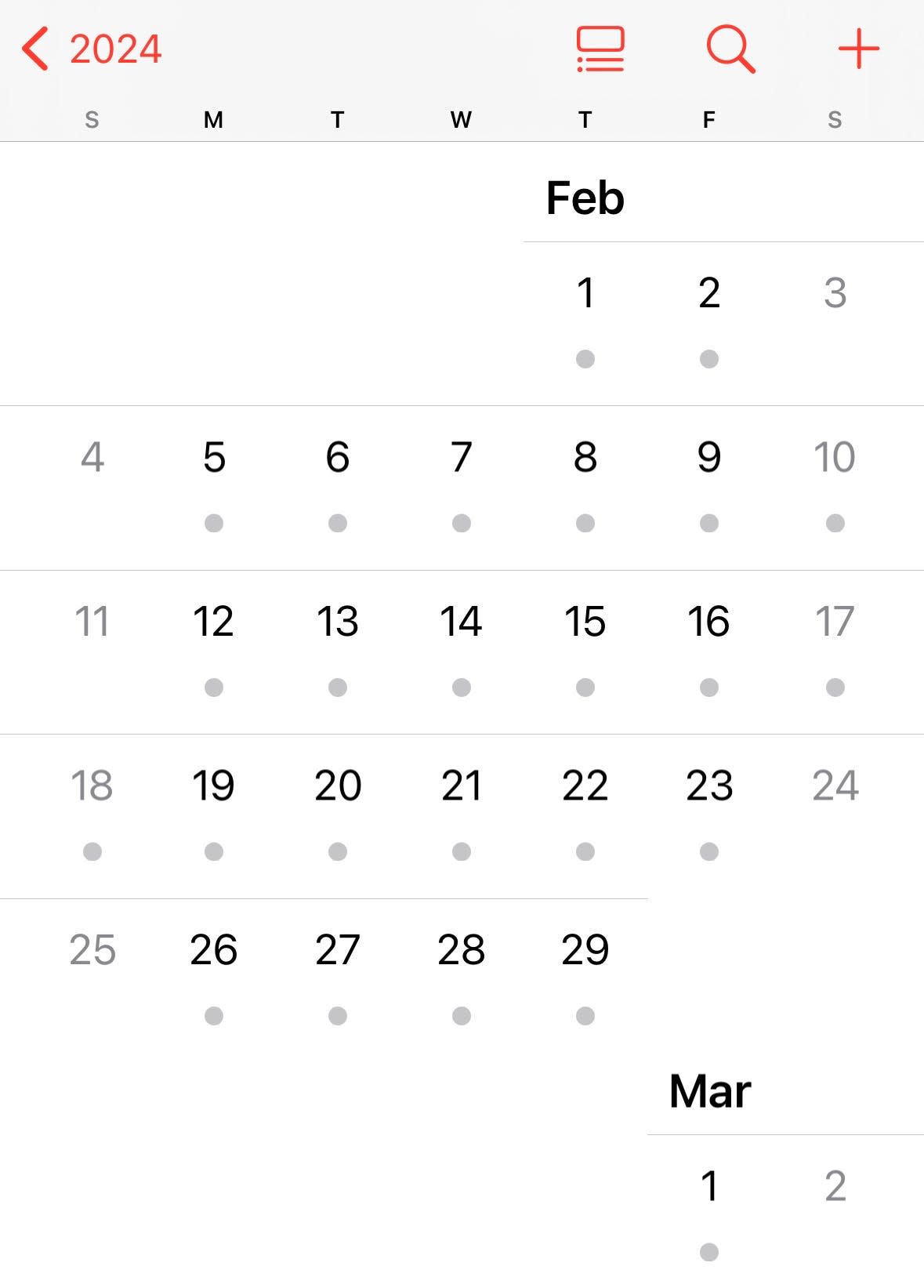When is the next leap year and what does that mean? Everything to know about February 2024

As the much-anticipated leap year approaches, individuals born on February 29th, also known as "leap day," are gearing up to celebrate their rare and distinctive birthdays. Leap year occurs every four years, and during this period, an extra day is added to the calendar. Those born on this unique day often refer to themselves as "leap day babies" or " Leaplings," according to History.
The additional day inserted every four years helps to synchronize our man-made timekeeping system with the Earth's natural orbit around the sun, which takes approximately 365.25 days. This adjustment ensures that seasonal changes and the equinoxes remain consistent over the years.
Here is everything you need to know about leap year.
What is leap year?
A leap year is a year that is evenly divisible by 4, except for end-of-century years, which must be divisible by 400 to be a leap year. This means that the year is 366 days long instead of the usual 365 days. The extra day, February 29th, is added to the calendar to keep the calendar year synchronized with the astronomical year, or the length of time it takes the Earth to complete its orbit around the sun.
Is 2024 a leap year?
Yes. 2024 is the first leap year since 2020.
Why 2024 is a leap year?
Leap years happen every four years to account for the accumulated quarter days in our calendar. The next leap years after 2024 will be 2028, 2032, 2036 and so forth.
How do you know if it's a leap year?
In simple terms, a leap year is a year that has an extra day, February 29th, instead of the usual 28 days. This extra day is added to the calendar every four years to make up for Earth's orbit around the sun takes about 365.25 days. According to NASA, if we didn't add this extra day, our calendars would gradually get out of sync with the actual time it takes for the Earth to complete one orbit.
To determine if a year is a leap year, divide it by 4. If the result is a whole number, then the year is a leap year.
How old is a leap year baby born in 2000?
A leap year baby born in 2000 would technically be 6 years old in terms of leap year birthdays. However, they would be 24 years old in regular calendar years in 2024. Here are some other leap year baby ages:
A leap year baby born in 2004 would be 5 in leap years but 20 in chronological years in 2024.
A leap year baby born in 2008 would be 4 in leap years but 16 in chronological years in 2024.
A leap year baby born in 2012 would be 3 in leap years but 12 in chronological years in 2024.
A leap year baby born in 2016 would be 2 in leap years, but 8 in chronological years in 2024.
How rare is a leap day baby?
Leap day babies, born on Feb. 29, are rare compared to those born on other days of the year. Since leap day occurs only once every four years, less than 0.1 percent of the population is born on Feb. 29.
When was the last leap year?
Leap years occur every four years, here are some recent leap years:
2020 - Leap Year.
2016 - Leap Year.
2012 - Leap Year.
When is the next leap year?
2024 - Leap Year.
2028 - Leap Year.
2032 - Leap Year.
Why February 29?
According to History, the choice of February for the leap year and the addition of an extra day dates back to the reforms made to the Roman calendar by Julius Caesar. The Roman calendar, at that time, was based on a lunar system and had a year of 355 days, which was shorter than the solar year. This discrepancy caused the calendar to drift out of sync with the seasons over time.
To address this issue, Julius Caesar introduced the Julian calendar, a solar calendar, which included a leap year system. When the Julian calendar was later refined into the Gregorian calendar in 1582, the tradition of adding a leap day to February persisted.
2024's biggest astronomical events: Every eclipse, meteor shower and full moon all year
Got a story you want to share? Reach out at Tiffany.Acosta@gannett.com. Follow @tiffsario on Instagram.
Support local journalism and subscribe to azcentral.com.
This article originally appeared on Arizona Republic: Leap Year 2024: Here's when it is and what it means

